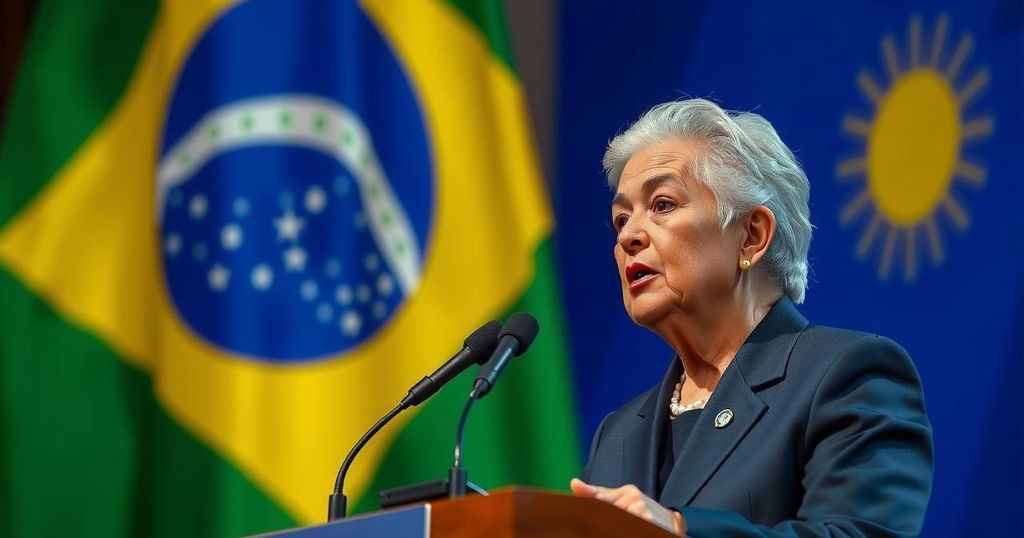Brazilian President Lula unveiled a global alliance against poverty and hunger at the G20 Summit in Rio, supported by 81 nations. The summit, overshadowed by the Middle East and Ukraine wars, aims to address climate change and international cooperation despite rising tensions and geopolitical conflicts. Key discussions include promoting technological advancements for the Global South and revitalizing climate finance initiatives.
During the Group of 20 (G20) Summit held in Rio de Janeiro, Brazilian President Luiz Inacio Lula da Silva presented a global alliance aimed at combating poverty and hunger, emphasizing that these issues arise from political decisions. In his opening remarks, he called for immediate action to alleviate the consequences of climate change, urging global leaders to collaborate for impactful solutions. This initiative received support from 81 countries, encompassing nearly all G20 members, with Argentina as the notable exception due to its political climate under far-right leadership. The summit unfolded amidst geopolitical tensions stemming from ongoing wars in the Middle East and Ukraine, overshadowing potential discussions regarding economic strategies. Although Ukraine was not formally on the agenda, it was anticipated that informal dialogues would revolve around the implications of international conflicts. Moreover, U.S. President Joe Biden’s attendance served as a capstone to his diplomatic tour, coinciding with significant policy shifts regarding support for Ukraine, thereby influencing the summit’s atmosphere. Global climate issues also emerged as a pivotal topic, as leaders faced pressure to revitalize stalled climate negotiations in Azerbaijan. The G20 has been identified by UN Secretary-General Antonio Guterres as a crucial forum for addressing climate finance inadequacies impacting developing countries. The summit’s security was heightened following recent violent incidents, underscoring the global climate crisis’ and geopolitical instability’s exhaustive toll on world leaders’ actions. Furthermore, China, in alignment with Brazil, South Africa, and the African Union, announced an initiative to enhance technological collaboration for the Global South, signaling a strategic response to geopolitical economic sanctions.
The event marked President Lula’s commitment to addressing global challenges, particularly poverty and hunger, alongside climate change. The proposal for an alliance reflects Rio de Janeiro’s goal to forge a united global front, particularly as nations face significant humanitarian and economic crises exacerbated by war. Meanwhile, the tension within the G20 over divergent national interests poses challenges to achieving consensus on crucial global issues. The gathering also coincides with urgent discussions on climate finance amid stalled negotiations, underscoring the interconnectedness of these global discussions.
In conclusion, the G20 Summit under President Lula’s leadership has spotlighted critical global issues such as poverty, hunger, and climate change. Through the collaboration of multiple nations, an ambitious alliance was formed; however, the backdrop of international conflict and political disagreements continues to impede coherent progress on these pressing challenges. As world leaders navigate these complexities, the urgency to facilitate actionable strategies is greater than ever.
Original Source: www.aljazeera.com






